
Do you remember what you were doing at twenty seven? Probably getting through a quarter-life crisis, trying to figure out your future, or stressing over the things you have absolutely no control over, like some ambitious twentysomethings tend to do.
Not Chef Javon Cummins.
The 27-year-old has always had a vision as clear as the sunny blue skies soaring over his native Barbados, and that vision has him taking the culinary world by storm. Cummins is currently the Executive Chef at one of the hottest restaurants in Barbados, Tapestry, and recently made history as the youngest executive chef from the island to have the privilege of cooking at the prestigious James Beard House.
With a confidence as cool as an island breeze, Chef Cummins has all eyes in the culinary world fixed on Barbados, as he wins award after award for the innovative, artistic and visually stunning dishes he’s become known for.
But the road to the top wasn’t easy.
After just a few minutes of chatting with Chef Cummins, you’ll get a glimpse into the humble boy who pulled himself up by the cookbook, taking other young men and women with big culinary dreams along for the ride. While his dishes will wow you, it’s his passion for cooking and giving back that make an impactful impression.
ESSENCE caught up with the rising star to talk about his humble beginnings, the difference between confident and cocky, the inspiration behind his dishes, and the advice he has for those who look up to him. Welcome to the chef’s table.
What makes Barbados such a special island when it comes to food?
Chef Javon Cummins: For one, Barbados has the distinction of being the only Zagat rated island in the entire Caribbean. Zagat has actually called us the “culinary capital of the Caribbean.” We have more restaurants per capita than any other destination in the Caribbean, as well. Also the diversity of options of food on the island. You can go to a small roadside shack like, Cuz’s Fish Shop on the beach, to Tapestry, where I work.
How would you describe the culinary experience at Tapestry?
Tapestry is a more modern take on food. So instead of the classical stuff, it’s more of an epicurean modern dining experience. It’s not fine dining because you fill it with a lot of different things, like smoke and base and ducks and pork. So it’s a lot different. It’s very cultural because we try to keep it in Barbadian flavors, especially dishes like the Cou Cou and Flying Fish. The guests really love our dishes! I try to elevate them in a way where they are just kinda mind-blowing.
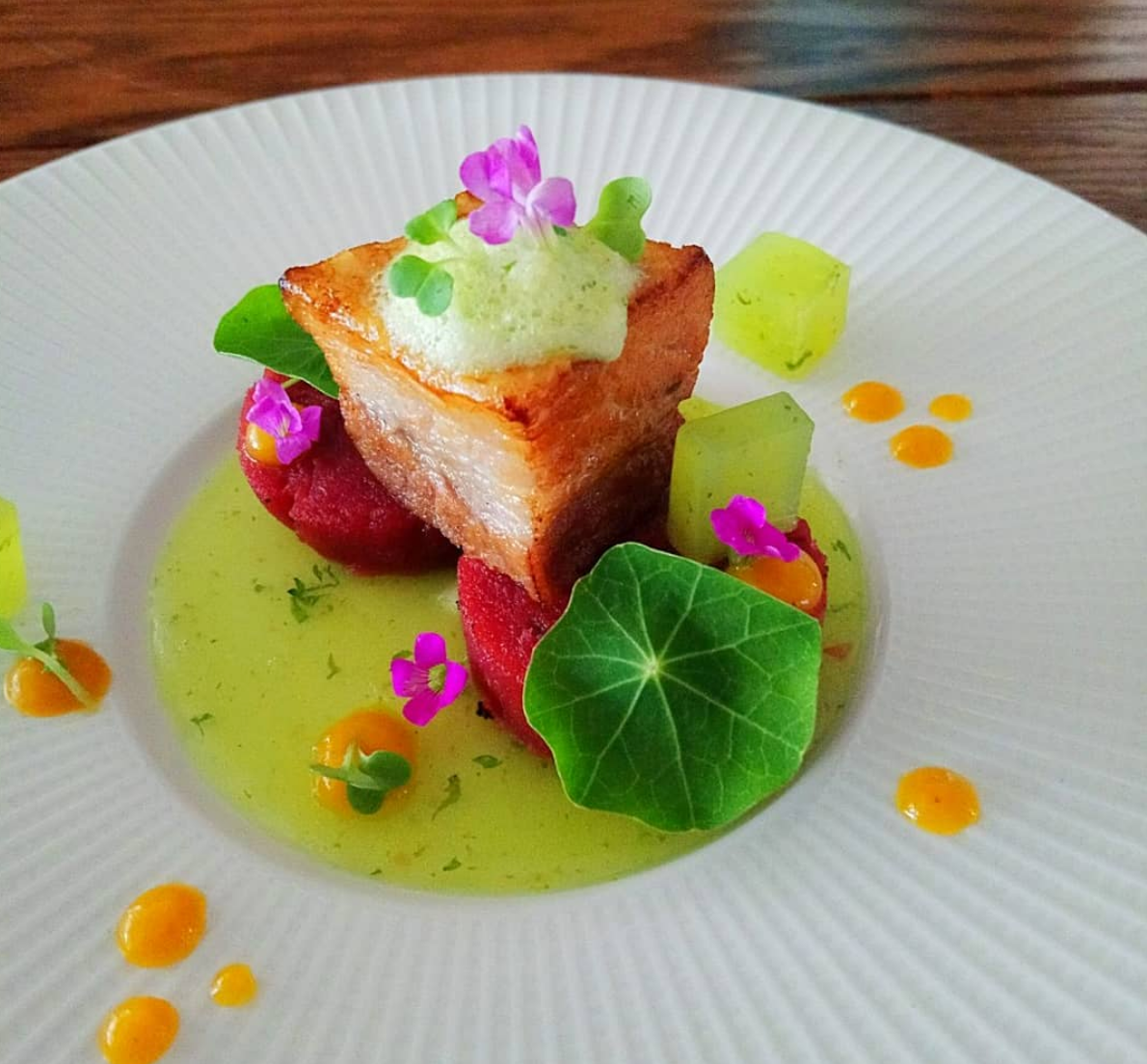
When visitors come to Tapestry, what three dishes should not be missed?
The dishes that you cannot miss are Souse, Buljol, and Cou Cou and Flying Fish. For the Souse, I deconstructed it and made it fancier than most people are used to seeing it. I turned the pickle juice into a jelly and the fig roll into like a cylindrical pudding, and mango gel, and Scotch wine gel, and pull everything together so when you eat it, it tastes like Souse, but it looks like art.
Buljol, I actually have a starter on one of the menus and it’s a classic, they call it deconstructed Buljol. So it’s a black cod with a tomato salsa gel. They make a tomato salsa and then they turn it into a gel, served alongside cumin shortbread and wilted organic leaves.
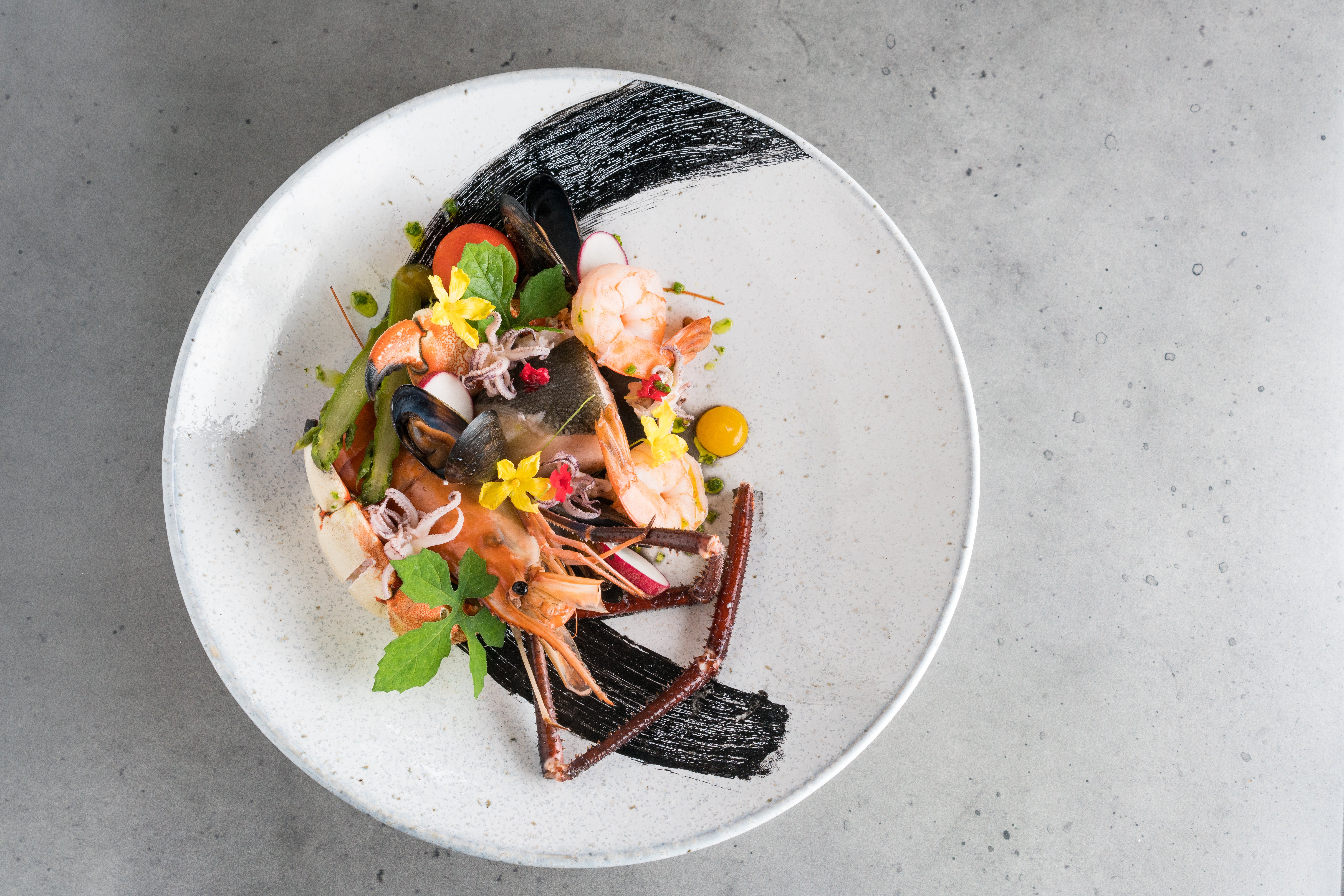
Then the last one is Cou Cou and Flying Fish. I tried not to touch that one too much because that is our national dish. So it’s basically the same thing you can find all over Barbados but just plated a lot different.
How exactly would you describe your culinary style?
It’s very modern-artistic. These days you can see in every culture, restaurants are kind of drifting away from the typical Beef Stroganoff, a classic Caesar Salad, or Shrimp Cocktails. It’s different, and it’s different mainly because millennials are taking over and they’re rating dishes and always going places and taking pictures. So, if they’re taking pictures it always has to be something that looks good for them.
One of your most popular dishes is a Guava Crème Brule Pork Belly. Where do you get the inspiration for your dishes?
With the Guava Crème Brule Pork Belly I am trained in pastry, as well as cuisine, so technically I’m a pastry chef too. Being able to fuse things together, it really works hand in hand for me. The pork belly was normal with nice spices, but then the Guava Crème Brule, I made almost like a guava cheese, then put it on top of the pork belly and torched it with a blow torch. So it’s like this nice, caramelized guava filling at the top and then you cut down and you have this spicy pork belly.
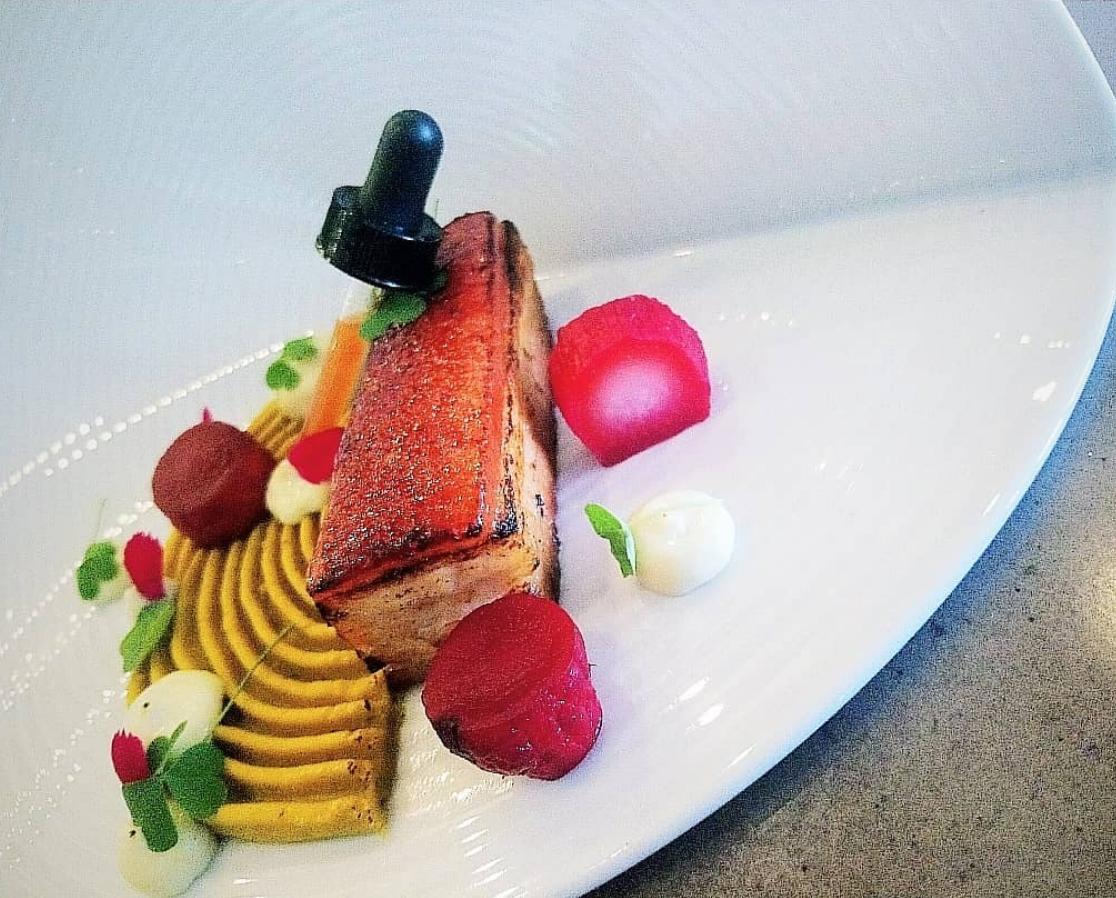
If you were trying to create a nice vibe for a summer party, what would your menu look like?
Everything has to be a lot lighter. You definitely have to have pork, maybe a pork taco or a pork skewer with some guava barbecue sauce. Then you could do a gazpacho, a nice, light passion fruit gazpacho and a light salad.
For the fish eaters, you could do a nice flying fish with some pickles, pickled pepper jelly, and a seedy salad.
I think knowing your guest is a major factor when creating the menu and overall vibe. You could have vegetarian friends, pescatarian friends, meat lovers, etc. I would try to have options for everyone because you don’t want to prepare a big pork spread and then you find out half the people are vegetarian. So, know your guests and then when you’re confident in flavors, meat profiles and textures, you’ll know exactly what to prepare.
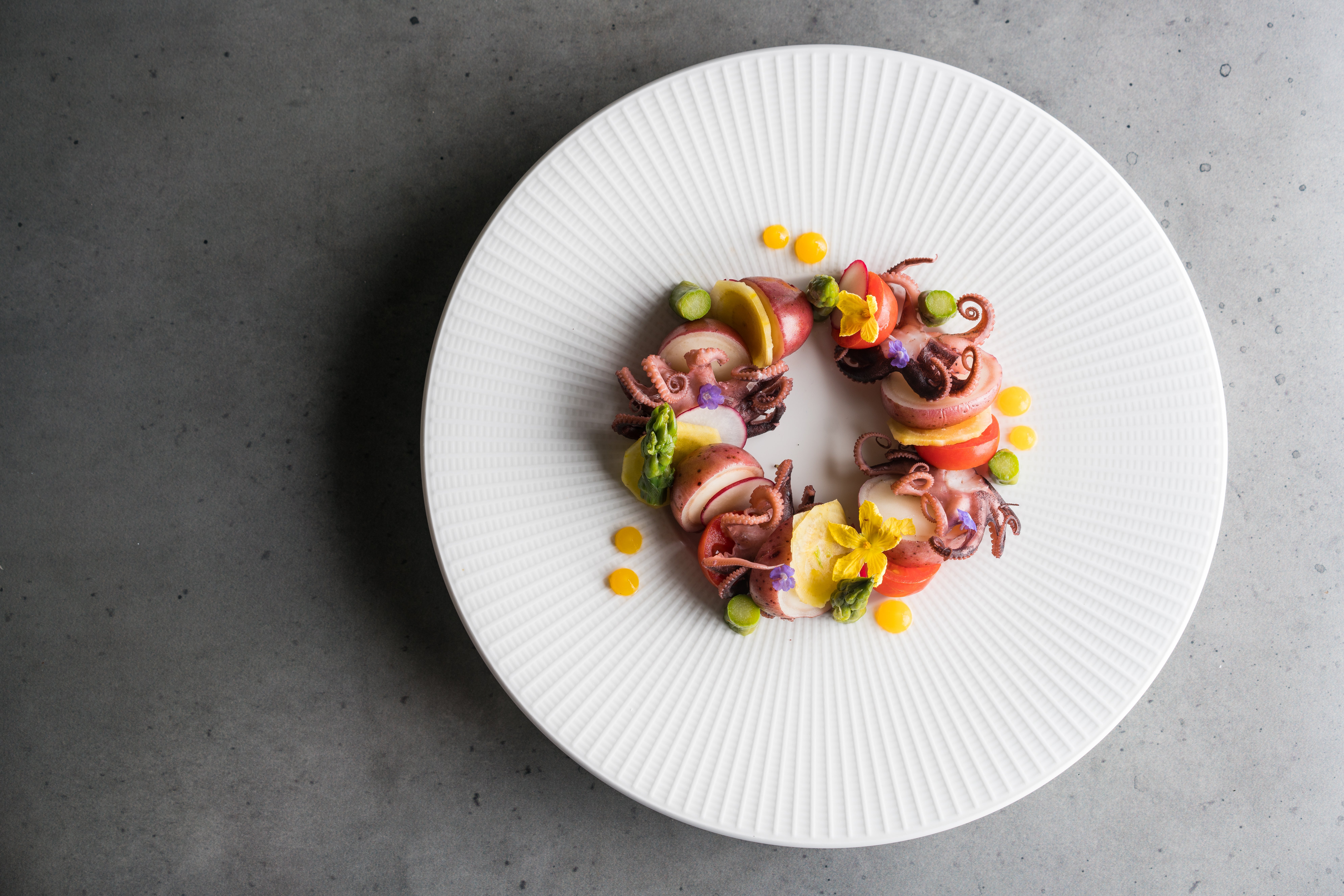
What tips do you have for home chefs looking to step their game up and come out of their comfort zone?
It’s all about experimentation. You can pick three spices and try doing different things with them. Like, say you’re making curry, you could try putting all three spices inside the curry and letting it boil and then see how it tastes. And then you could try it again, but this time you start with a little olive oil and put one of the spices in your oil to enhance the flavor and then build from there, and see how that tastes. And then next time, you try putting all three in the olive oil and let all these flavors expand together and see how that taste. You will notice three different flavor profiles from this simple experiment. So I would say experimentation with everything is really key.
How do you feel about your recent accomplishment of cooking at the James Beard House?
It was a big deal! All my friends and chef friends back home in Barbados were like, “That is next level.” So I was just like, “Okay, yeah, it is.” But I try not to overthink it because I overthink everything. So I try to leave it as, “Okay, you’re good. Just go there and just kill it.” That’s the whole plan.
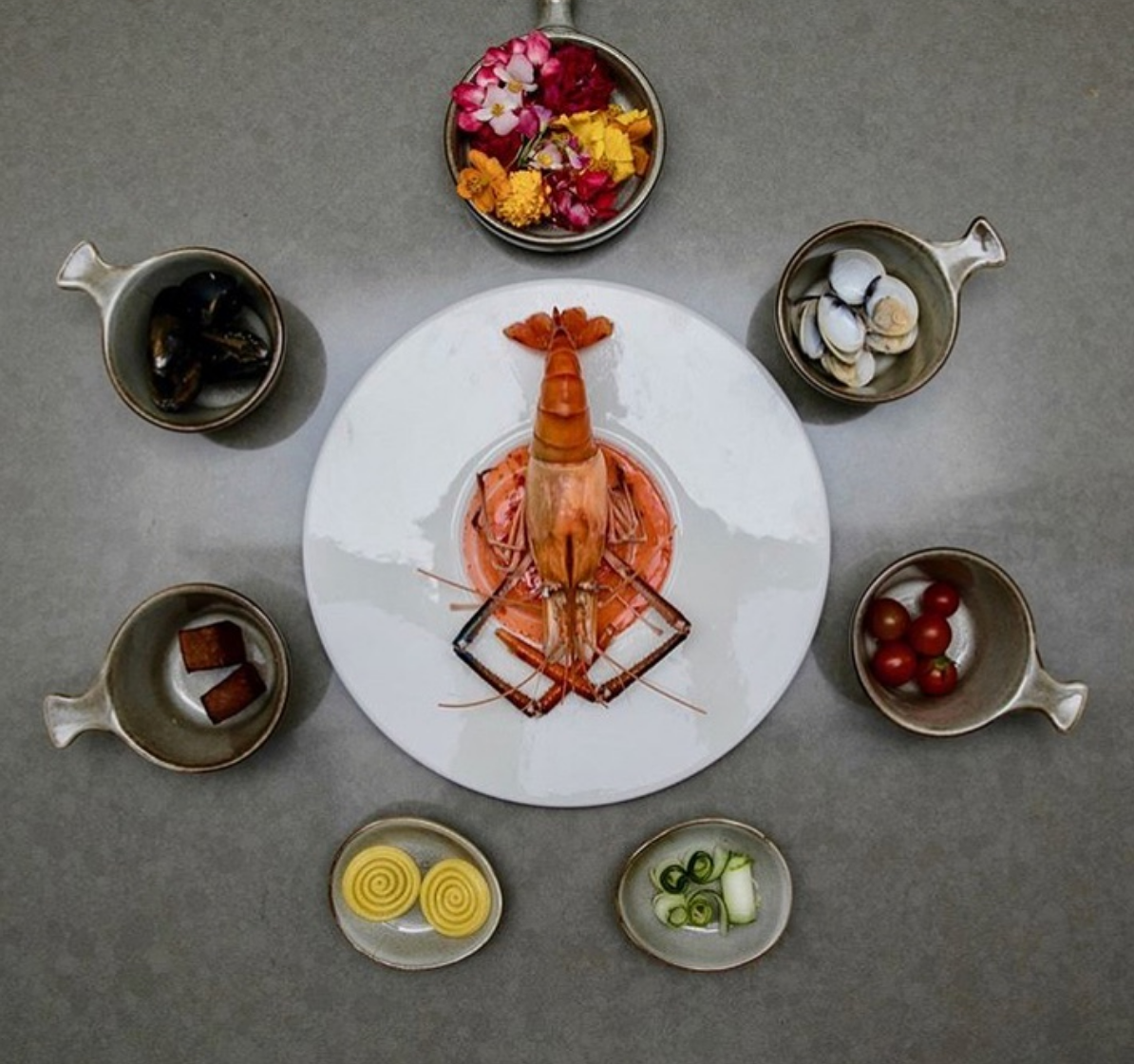
What are some of the challenges you faced in your journey to get where you are now?
Growing up I’ve just always had a love for cooking, going in the kitchen and playing around with stuff. But I also had a love for architecture. So, it was tough to choose between cooking and architecture, but I eventually chose cooking. I worked my way up the ladder at eighteen-years-old and I remember at one of my first jobs there was a general manager that didn’t think I was right for the job. He would say things like, “You’re perfect. You’re talented and you’re going to go places, but I just think you are too young.” So, you know, telling that to an eighteen-year-old is kind of like saying, “You’re good, but you’re not good enough.”
So, another general manager, because the restaurant was a franchise, wanted me because they were seeing me in the papers and competitions and they were just like, “Javon, I definitely need to work with you.” I interviewed for the job and got it. Then the same general manager that told me I was too young comes to me before I leave and says “Um, you can stay and we could give you the raise.” But I turned him down because I knew that had he not seen the other manager’s interest, this offer wouldn’t be happening.
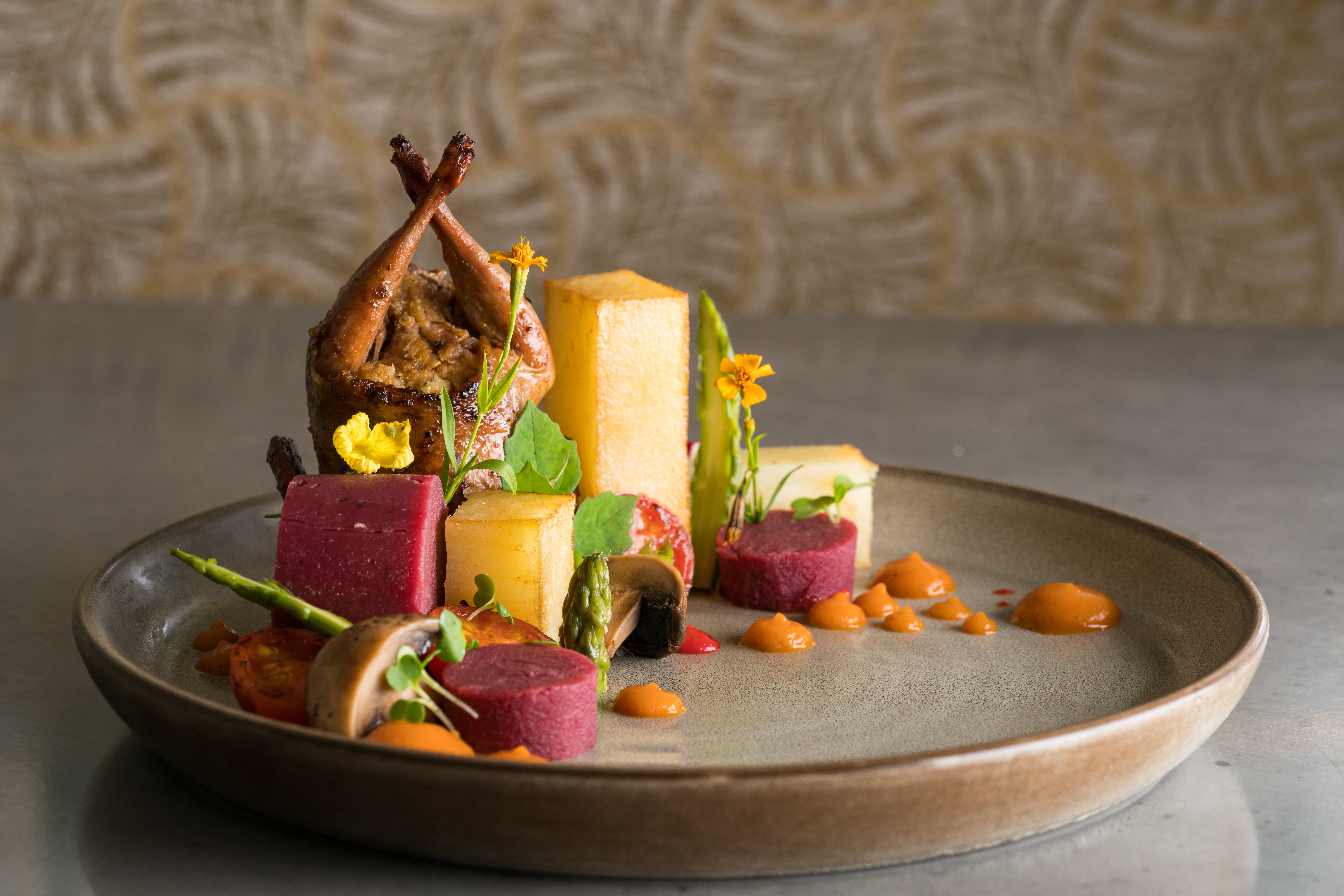
I went to the next hotel and it was really good because it’s on the west coast of Barbados, and being there just pushed me a lot more. And then that became boring so I took a break to figure out my next move, and then Tapestry came with an offer that allowed me to create everything from scratch – the kitchen layout, the menus, every single detail. During that rocky time when I took a break I was just like, “I need to understand, I have a love for food but I need people to see it from a different perspective. And tying art into it needs to be very important.” So when Tapestry called me with the offer and said “Hey, you’re the right person for this job,” I knew this was an opportunity I should definitely jump on and take things to the next level. And three years later, Tapestry is doing very, very, very, very well.
What advice do you have for young men and women aspiring to be successful in the culinary world?
I think having confidence in yourself and what you bring to the table and not being cocky with it but just knowing who you are is key. I do a lot of work with my old culinary school, and I actually go back and get to mentor current students. It’s really good to see guys and girls actually looking up to me. I was in their shoes not to long ago.
I always tell them to just stick with it. Be as confident as possible in what you do. Don’t be over-confident. And just, show people that you’re passionate about what you do. Passion usually overrules. I say that passion overrules everything, because once you have a passion for something, somebody always sees that you have a passion for it. So, once you have that, I think that somebody in the crowd will see you at some point and then it will just grow from there. I realized that it’s challenging, but anything that comes too easy can go just as easy. Once you stick with it and you really put your best work in it, know that it’s going to last for a long time.
Speaking of mentorship, you hired a young team at Tapestry. What led you to that decision?
When we opened Tapestry I said that I wanted a young team to work it, and I got to hand-select every single member that works in the kitchen with me. And all my staff are between the ages of nineteen and thirty five. It’s great! I get to mentor them and they mentor me at the same time because we’re working together.
But, for most of the staff, I worked with them when I was just starting out and I remembered two of them reminding me that I told them that I was going to be head chef by twenty five. The month before my 25th birthday I signed the contract for head chef and they sent me a message with the news and they were crying and just like, “You talked about this and it actually came to pass.”
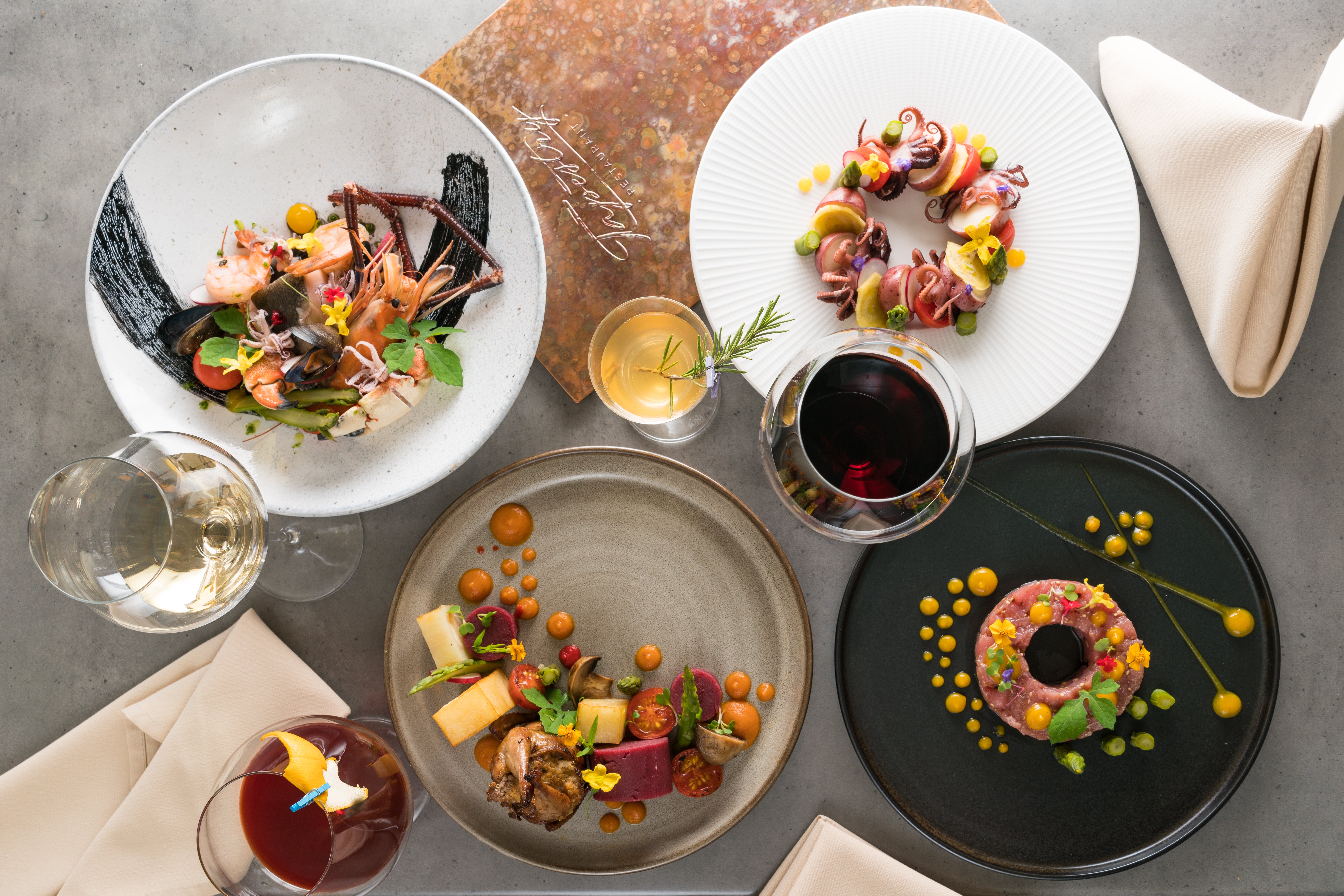
Many chefs on your level trained at prestigious culinary schools in Paris, for example. Did you receive similar training?
No. All Caribbean training. And looking at research and stuff online, reading a lot of books, training myself in my mother’s kitchen just going through stuff and going over it over and over to perfect it. And that’s how I know that hard work truly pays off. When I was just starting out, every time I got paid I went to the bookstore and would buy a new cookbook, and every time I’d go to a cookbook, I would look at a recipe and I would try it. I invested a lot into studying and learning on my own.
I would just tell myself you’ve got school and you’ve got your degree, but you still want to continue learning. And you’re not going to go to Paris right now, so you have to invest in your knowledge from right here in Barbados. And I tell my staff that, I always remind them to invest in themselves. Go buy a book, go through it, and then see if you can pick out every ingredient and create it in more of a local, Bajan type flavor.